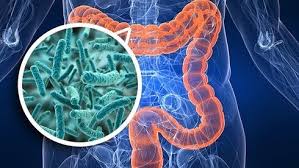Modulation of the intestinal microbiota with lifestyle: results of an intensive 14-day program
DOI:
https://doi.org/10.61661/congresso.cbmev.7.2024.126Keywords:
plant based diet, Obesity, lifestyle medicine, inflammation, microbiome, gut microbiomeAbstract
This case report describes the changes in the gut microbiota of a 61-year-old patient with class III obesity and hypertension after a 14-day inpatient program at a specialized Lifestyle Medicine clinic (Rituaali). The patient underwent an intensive program that included a plant-based diet, daily physical activity, psychological counseling sessions, group discussions on purpose, spirituality, and social connections. Gut microbiota analysis was performed before and after the inpatient stay using high-performance sequencing of the V3/V4 region of the 16S rRNA gene. Comparing the microbiota tests from 08/26/2024 and 09/20/2024, there was a significant increase in Faecalibacterium prausnitzii (13.6% to 22.4%), Eubacterium rectale (1.2% to 3.0%), and Roseburia (1.0% to 1.6%), bacteria known for their anti-inflammatory properties and short-chain fatty acid (SCFA) production, which promote intestinal barrier integrity. Furthermore, there was a significant reduction in pro-inflammatory bacteria such as Escherichia coli (3.2% to 2.1%) and the disappearance of pathobionts such as Klebsiella pneumoniae and Sutterella wadsworthensis. The proportion of Proteobacteria, a phylum associated with chronic inflammation, decreased from 8.0% to 2.1%, while the Firmicutes/Bacteroidetes ratio adjusted from 4.2 to 3.8, creating a more balanced microbial environment. These findings suggest that lifestyle interventions, particularly a plant-based diet combined with physical activity and psychological support, have a beneficial impact on gut microbiota modulation, reducing the presence of pro-inflammatory bacteria and promoting the growth of beneficial species associated with gut health. This case highlights the potential of Lifestyle Medicine to improve metabolic and inflammatory parameters through microbiome modulation.
References
Kahleova H, Rembert E, Alwarith J, Yonas WN, Tura A, Holubkov R, Agnello M,
Chutkan R, Barnard ND. Effects of a Low-Fat Vegan Diet on Gut Microbiota in
Overweight Individuals and Relationships with Body Weight, Body Composition, and
Insulin Sensitivity. A Randomized Clinical Trial. Nutrients. 2020 Sep 24;12(10):2917.
https://doi.org/10.3390/nu12102917 PMID: 32987642; PMCID: PMC7598634. DOI: https://doi.org/10.3390/nu12102917
Sidhu SRK, Kok CW, Kunasegaran T, Ramadas A. Effect of Plant-Based Diets on
Gut Microbiota: A Systematic Review of Interventional Studies. Nutrients. 2023 Mar
;15(6):1510. https://doi.org/10.3390/nu15061510 PMID: 36986240; PMCID: PMC10057430. DOI: https://doi.org/10.3390/nu15061510
Ahmad SR. Plant-based diet for obesity treatment. Front Nutr. 2022 Sep 8;9:952553.
https://doi.org/10.3389/fnut.2022.952553 PMID: 36159462; PMCID: PMC9493195. DOI: https://doi.org/10.3389/fnut.2022.952553
Randeni N, Bordiga M, Xu B. A Comprehensive Review of the Triangular
Relationship among Diet-Gut Microbiota-Inflammation. Int J Mol Sci. 2024 Aug
;25(17):9366. https://doi.org/10.3390/ijms25179366 PMID: 39273314; PMCID: DOI: https://doi.org/10.3390/ijms25179366
PMC11394685.
Muralidharan J, Galiè S, Hernández-Alonso P, Bulló M, Salas-Salvadó J. Plant-Based
Fat, Dietary Patterns Rich in Vegetable Fat and Gut Microbiota Modulation. Front
Nutr. 2019 Oct 11;6:157. https://doi.org/10.3389/fnut.2019.00157 PMID: 31681786; PMCID: DOI: https://doi.org/10.3389/fnut.2019.00157
PMC6797948.

Downloads
Published
How to Cite
Issue
Section
License
Copyright (c) 2024 Daniel José Matos de Medeiros-Lima, Lorena Pinto Andrade, Gabriela Raimann

This work is licensed under a Creative Commons Attribution 4.0 International License.
The VI Brazilian Congress of Lifestyle Medicine allows the author(s) to maintain their copyright without restrictions. Publications are licensed under the Creative Commons Attribution 4.0 International License - CC-BY


